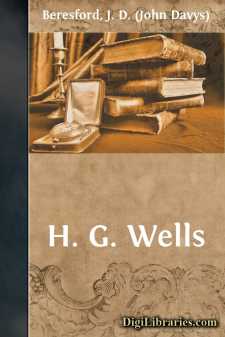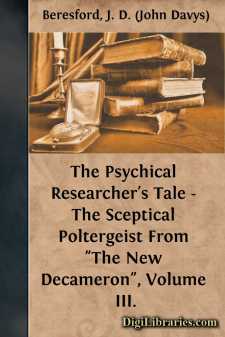Categories
- Antiques & Collectibles 13
- Architecture 36
- Art 48
- Bibles 22
- Biography & Autobiography 813
- Body, Mind & Spirit 141
- Business & Economics 28
- Children's Books 12
- Children's Fiction 9
- Computers 4
- Cooking 94
- Crafts & Hobbies 4
- Drama 346
- Education 46
- Family & Relationships 57
- Fiction 11826
- Games 19
- Gardening 17
- Health & Fitness 34
- History 1377
- House & Home 1
- Humor 147
- Juvenile Fiction 1873
- Juvenile Nonfiction 202
- Language Arts & Disciplines 88
- Law 16
- Literary Collections 686
- Literary Criticism 179
- Mathematics 13
- Medical 41
- Music 40
- Nature 179
- Non-Classifiable 1768
- Performing Arts 7
- Periodicals 1453
- Philosophy 64
- Photography 2
- Poetry 896
- Political Science 203
- Psychology 42
- Reference 154
- Religion 513
- Science 126
- Self-Help 83
- Social Science 81
- Sports & Recreation 34
- Study Aids 3
- Technology & Engineering 59
- Transportation 23
- Travel 463
- True Crime 29
H. G. Wells
Categories:
Description:
Excerpt
INTRODUCTION
THE NORMALITY OF MR WELLS
In his Preface to the Unpleasant Plays, Mr Shaw boasts his possession of "normal sight." The adjective is the oculist's, and the application of it is Mr Shaw's, but while the phrase is misleading until it is explained to suit a particular purpose, it has a pleasing adaptability, and I can find none better as a key to the works of Mr H.G. Wells.
We need not bungle over the word "normal," in any attempt to meet the academic objection that it implies conformity to type. In this connection, the gifted possessor of normal sight is differentiated from his million neighbours by the fact that he wears no glasses; and if a few happy people still exist here and there who have no need for the mere physical assistance, the number of those whose mental outlook is undistorted by tradition, prejudice or some form of bias is so small that we regard them as inspired or criminal according to the inclination of our own beloved predilection. And no spectacles will correct the mental astigmatism of the multitude, a fact that is often a cause of considerable annoyance to the possessors of normal sight. That defect of vision, whether congenital or induced by the confinements of early training, persists and increases throughout life, like other forms of myopia. The man who sees a ball as slightly flattened, like a tangerine orange too tightly packed (an "oblate spheroid" would be the physicist's brief description), seeks the society of other men who share his illusion; and the company of them take arms against the opposing faction, which is confirmed in the belief that the ball is egg-shaped, that the bulge, in fact, is not "oblate" but "prolate."
I will not elaborate the parable; it is sufficient to indicate that in my reading of Mr Wells, I have seen him as regarding all life from a reasonable distance. By good fortune he avoided the influences of his early training, which was too ineffectual to leave any permanent mark upon him. His readers may infer, from certain descriptions in Kipps, and The History of Mr Polly, that Wells himself sincerely regrets the inadequacies of that "private school of dingy aspect and still dingier pretensions, where there were no object lessons, and the studies of book-keeping and French were pursued (but never effectually overtaken) under the guidance of an elderly gentleman, who wore a nondescript gown and took snuff, wrote copperplate, explained nothing, and used a cane with remarkable dexterity and gusto." But, properly considered, that inadequate elderly gentleman may be regarded as our benefactor. If he had been more apt in his methods, he might have influenced the blessed normality of his pupil, and bound upon him the spectacles of his own order. Worse still, Mr Wells might have been born into the leisured classes, and sent to Eton and Christchurch, and if his genius had found any expression after that awful experience, he would probably, at the best, have written polite essays or a history of Napoleon, during the intervals of his leisured activity as a member of the Upper House....





